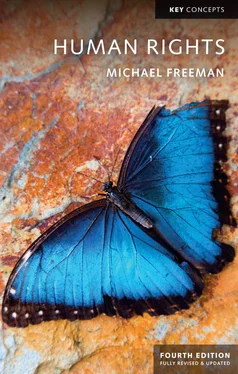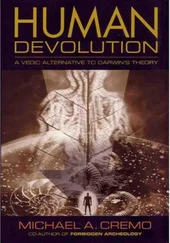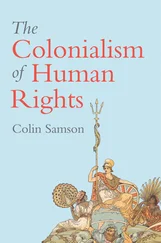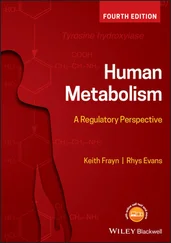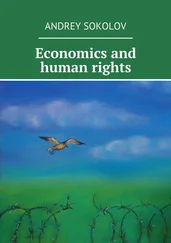251 245
252 246
253 247
254 248
255 249
256 250
257 251
258 252
259 253
260 254
261 255
262 256
263 257
264 258
265 259
266 260
267 261
268 262
269 263
270 264
Fourth Edition
Michael Freeman
polity
Copyright © Michael Freeman 2022
The right of Michael Freeman to be identified as Author of this Work has been asserted in accordance with the UK Copyright, Designs and Patents Act 1988.
First published in 2022 by Polity Press
Polity Press
65 Bridge Street
Cambridge CB2 1UR, UK
Polity Press
101 Station Landing
Suite 300
Medford, MA 02155, USA
All rights reserved. Except for the quotation of short passages for the purpose of criticism and review, no part of this publication may be reproduced, stored in a retrieval system or transmitted, in any form or by any means, electronic, mechanical, photocopying, recording or otherwise, without the prior permission of the publisher.
ISBN-13: 978-1-5095-4603-9
ISBN-13: 978-1-5095-4604-6 (pb)
A catalogue record for this book is available from the British Library.
Library of Congress Control Number: 2021939923
by Fakenham Prepress Solutions, Fakenham, Norfolk NR21 8NL
The publisher has used its best endeavours to ensure that the URLs for external websites referred to in this book are correct and active at the time of going to press. However, the publisher has no responsibility for the websites and can make no guarantee that a site will remain live or that the content is or will remain appropriate.
Every effort has been made to trace all copyright holders, but if any have been overlooked the publisher will be pleased to include any necessary credits in any subsequent reprint or edition.
For further information on Polity, visit our website: politybooks.com
Preface to the Fourth Edition
‘These are the times that try men’s souls.’
Thomas Paine, The American Crisis , 1776
This is the fourth edition of a book about the concept of human rights in the social sciences. The third edition was completed in November 2016. In that month Donald Trump was elected President of the USA. Much has happened in society and the social sciences since then. President Trump has come and gone; President Biden has arrived. The UK has left the European Union. China’s rise has continued. Authoritarian populism has taken command in many countries, including Russia, India, Brazil, Hungary, Poland and the Philippines. Violent conflicts persist in Syria, Yemen, Myanmar and Mozambique. Climate change threatens disaster. New technologies threaten democracy. A pandemic is killing millions. Racial tensions are unresolved. These are hard times for human rights.
The concept of human rights has a complex relationship with the social sciences. The contemporary concept derives from the United Nations Charter of 1945 and the UN Universal Declaration of Human Rights of 1948, which gave rise to a vast body of international and national human-rights law. These were indebted to the concepts of natural rights and the Rights of Man proclaimed in the American and French revolutions of the eighteenth century. The social sciences emerged in the nineteenth century in reaction against those concepts, which they rejected as anti-social and unscientific. For decades after the UN revived the concept of human rights, the social sciences took little notice. After the rise of the human-rights movement in the 1970s, and the challenges to authoritarian rule in eastern Europe, Latin America, South Africa and elsewhere, the social science of human rights began to wake up. The early social-science studies focused on US foreign policy and the impact of international human-rights law, and generally reached sceptical conclusions about both. Later studies reached more nuanced conclusions. Recently renewed scepticism about human rights has appeared with titles such as The Twilight of Human Rights Law (Posner 2014a) and The Endtimes of Human Rights (Hopgood 2013). A new generation of human-rights historians has challenged what they call the ‘textbook’ history of human rights, which they consider simplistic and triumphalist, and questioned long-term, ‘deep’ histories for underplaying the changing nature of rights-concepts.
This book is committed to the following propositions: 1) because the concept of human rights and the social sciences have different histories and rest on different philosophical assumptions, the relationship between them must be understood, in part, historically and philosophically; 2) because the human-rights movement and social science rest on deep assumptions that are problematic and rarely acknowledged, a ‘deep’ history that excavates these assumptions is necessary to clarify and evaluate them; 3) social science is necessary to evaluate the concept of human rights in theory and practice; 4) evaluating both human rights and social science requires an understanding of both their value and their limits.
This new edition covers the ‘real world’ of human rights up to the early days of the Biden presidency and the Islamist massacres in Mozambique. It takes account of the Black Lives Matter movement and the call to ‘decolonize’ the curriculum with a new emphasis on the complex historical relationship between human-rights liberalism, racism and colonialism. It responds to the claim that the concept of human rights is inadequate to deal, in theory or in practice, with issues of social justice in general, and those of the global economy and neoliberal ideology in particular. It evaluates the current state of the international human-rights movement and the human-rights work of the United Nations. It locates the current state of human rights in contemporary concerns about a supposed crisis of liberal democracy and clarifies the misunderstood relationship of human rights to liberalism. It analyses the challenges for human rights of the environmental crisis, pandemics and new technologies. Finally, it assesses whether, faced with persistent violent conflict and gross human-rights violations in many parts of the world, social science exposes the concept of human rights as an illusory ideal or whether it gives us ‘evidence for hope’ (Sikkink 2017).
Michael Freeman
May 2021
1 Introduction Thinking About Human Rights
Realities
Saydnaya prison is a military establishment near Damascus in Syria. Most prisoners are civilians: political dissidents, human-rights defenders, journalists, doctors, aid workers and students. Between 2011 and 2017, according to Amnesty International, some 13,000 prisoners were hanged in Saydnaya after having been tortured and deprived of food, water, medicine, medical care and sanitation. Before they were hanged, the victims were condemned to death in ‘trials’ which lasted between one and three minutes (Amnesty International 2017).
The prison at Saydnaya is the product of complex historical, political and economic processes. Syria was part of the Ottoman Empire from the sixteenth century until the defeat of the Ottomans in the First World War. After the war, the League of Nations awarded the mandate of Syria to France, which ruled it in effect as a colony. This arrangement lasted until the end of the Second World War, when a combination of Arab nationalism and France’s defeat by Germany led to the establishment of the independent Syrian republic in 1950.
The new state was weak and the army, with its Ba’athist, nationalist ideology, carried out a coup in 1963 and repressed the opposition. In 1970 the Defence Minister, Hafez al-Assad, staged another coup. His corrupt and repressive regime sought to mobilize support by a cult of Assad’s personality. Hafez al-Assad died in 2000 and was succeeded by his son, Bashar al-Assad. Bashar’s neoliberal economic policies benefited a minority while increasing inequality. When the democracy protests of the Arab Spring reached Syria early in 2011 the regime was vulnerable to widespread discontent.
Читать дальше
